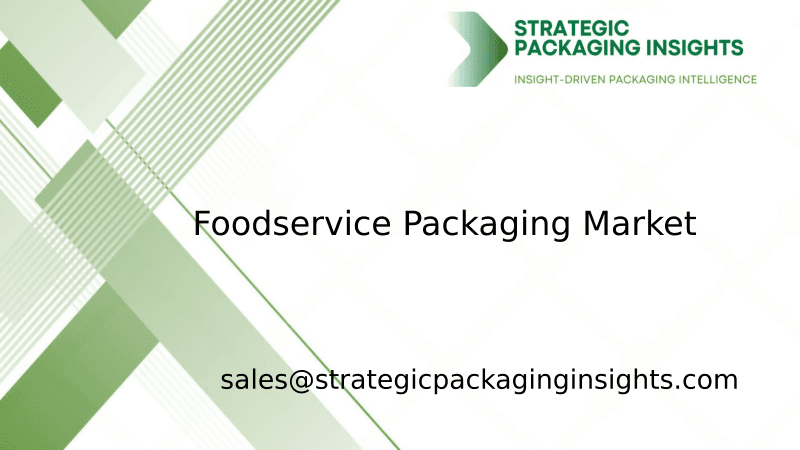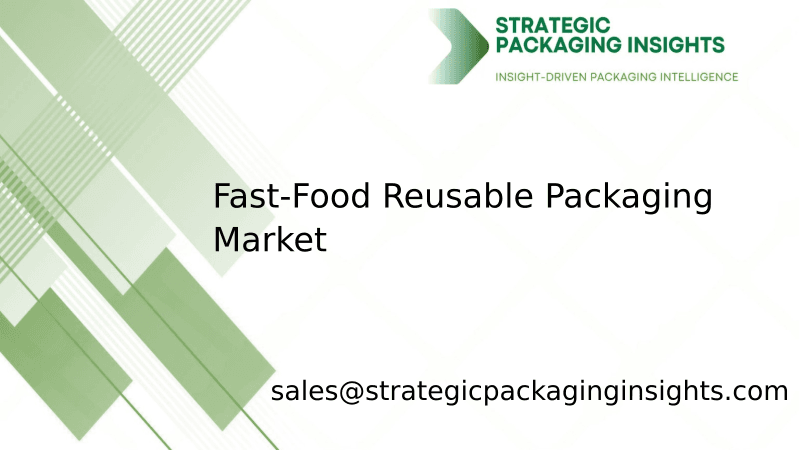- Home
- Packaging Products
- Kraft Bubble Mailer Market Size, Future Growth and Forecast 2033
Kraft Bubble Mailer Market Size, Future Growth and Forecast 2033
Kraft Bubble Mailer Market Segments - by Material Type (Kraft Paper, Polyethylene, Others), End-User (E-commerce, Logistics, Manufacturing, Retail, Others), Size (Small, Medium, Large), and Region (Asia Pacific, North America, Latin America, Europe, and Middle East & Africa) - Market Dynamics, Growth Opportunities, Strategic Drivers, and PESTLE Outlook (2025–2033)
Kraft Bubble Mailer Market Outlook
The Kraft Bubble Mailer market was valued at $1.2 billion in 2024 and is projected to reach $2.5 billion by 2033, growing at a CAGR of 8.5% during the forecast period 2025–2033. This market is experiencing robust growth driven by the increasing demand for sustainable and Protective Packaging solutions. Kraft bubble mailers, known for their eco-friendly attributes and excellent cushioning properties, are gaining traction across various industries, including e-commerce, logistics, and retail. The rise in online shopping and the need for secure packaging to prevent damage during transit are significant factors propelling the market forward. Additionally, the growing awareness about environmental sustainability is encouraging businesses to adopt kraft bubble mailers as a preferred packaging solution.
Despite the promising growth prospects, the market faces certain challenges. The fluctuating prices of raw materials, such as kraft paper and polyethylene, can impact the overall production costs, posing a restraint to market growth. Moreover, the availability of alternative packaging solutions, such as padded envelopes and Corrugated Boxes, may limit the widespread adoption of kraft bubble mailers. However, the market holds significant growth potential, driven by technological advancements in packaging materials and the increasing focus on reducing carbon footprints. Companies are investing in research and development to enhance the durability and recyclability of kraft bubble mailers, which is expected to create new opportunities in the market.
Report Scope
| Attributes | Details |
| Report Title | Kraft Bubble Mailer Market Size, Future Growth and Forecast 2033 |
| Base Year | 2024 |
| Historic Data | 2017-2023 |
| Forecast Period | 2025-2033 |
| Number of Pages | 238 |
| Material Type | Kraft Paper, Polyethylene, Others |
| End-User | E-commerce, Logistics, Manufacturing, Retail, Others |
| Size | Small, Medium, Large |
| Region | Asia Pacific, North America, Latin America, Europe, Middle East & Africa |
| Customization Available | Yes* |
Opportunities & Threats
The Kraft Bubble Mailer market presents numerous opportunities for growth, primarily driven by the expanding e-commerce sector. With the surge in online shopping, there is a heightened demand for reliable and cost-effective packaging solutions that ensure the safe delivery of products. Kraft bubble mailers, with their lightweight and protective features, are increasingly being adopted by e-commerce companies to enhance customer satisfaction and reduce shipping costs. Furthermore, the growing emphasis on sustainability and eco-friendly packaging is creating a favorable environment for the market. Consumers and businesses alike are becoming more conscious of their environmental impact, leading to a shift towards recyclable and Biodegradable Packaging materials. This trend is expected to drive the demand for kraft bubble mailers, as they align with the sustainability goals of many organizations.
Another significant opportunity lies in the logistics and transportation industry. As global trade continues to expand, there is a rising need for efficient packaging solutions that can withstand the rigors of long-distance shipping. Kraft bubble mailers offer excellent protection against moisture, dust, and impact, making them an ideal choice for transporting a wide range of products. Additionally, the increasing adoption of automation and digitalization in the logistics sector is expected to boost the demand for standardized packaging solutions like kraft bubble mailers, which can be easily integrated into automated sorting and handling systems.
However, the market is not without its challenges. One of the primary restraints is the competition from alternative packaging solutions. Products such as padded envelopes and corrugated boxes offer similar protective features and are widely used across various industries. To overcome this challenge, manufacturers of kraft bubble mailers need to focus on differentiating their products through innovation and value-added features. Additionally, the market is susceptible to fluctuations in raw material prices, which can impact profit margins and overall market growth. Companies need to adopt effective cost management strategies and explore alternative sourcing options to mitigate these risks.
The Kraft Bubble Mailer market is characterized by a competitive landscape with several key players vying for market share. The market is dominated by a mix of established companies and emerging players, each striving to enhance their product offerings and expand their customer base. The competitive rivalry is intense, with companies focusing on product innovation, strategic partnerships, and mergers and acquisitions to gain a competitive edge. The market is witnessing a trend towards consolidation, as larger companies acquire smaller players to strengthen their market position and expand their geographical reach.
Among the major players in the market, Sealed Air Corporation holds a significant market share, known for its extensive range of protective packaging solutions, including kraft bubble mailers. The company is recognized for its commitment to sustainability and innovation, continuously investing in research and development to enhance the performance and eco-friendliness of its products. Another prominent player, Pregis Corporation, is renowned for its comprehensive packaging solutions and strong distribution network, enabling it to cater to a diverse range of industries globally.
3M Company is also a key player in the kraft bubble mailer market, leveraging its expertise in adhesive and packaging technologies to offer high-quality and durable products. The company's focus on customer-centric solutions and continuous product development has helped it maintain a strong market presence. Additionally, Intertape Polymer Group Inc. is a notable player, known for its innovative packaging solutions and commitment to sustainability. The company's strategic acquisitions and partnerships have further strengthened its position in the market.
Other significant players in the market include Polyair Inter Pack Inc., Storopack Hans Reichenecker GmbH, and ProAmpac LLC, each contributing to the market's growth through their diverse product portfolios and strategic initiatives. These companies are focusing on expanding their production capacities and enhancing their distribution networks to meet the growing demand for kraft bubble mailers. The competitive landscape is expected to remain dynamic, with companies continuously striving to innovate and differentiate their offerings to capture a larger share of the market.
Key Highlights Kraft Bubble Mailer Market

- Increasing demand for eco-friendly packaging solutions is driving market growth.
- Rising e-commerce activities are boosting the demand for kraft bubble mailers.
- Technological advancements in packaging materials are enhancing product durability.
- Fluctuating raw material prices pose a challenge to market growth.
- Strategic partnerships and acquisitions are shaping the competitive landscape.
- Focus on sustainability is encouraging the adoption of recyclable packaging materials.
- Expansion of logistics and transportation sectors is creating new opportunities.
- Growing consumer awareness about environmental impact is influencing purchasing decisions.
- Automation in logistics is driving the demand for standardized packaging solutions.
- Innovation in product design is key to gaining a competitive edge.
Top Countries Insights in Kraft Bubble Mailer
The United States is a leading market for kraft bubble mailers, with a market size of $500 million and a CAGR of 7%. The country's robust e-commerce sector and increasing focus on Sustainable Packaging solutions are key growth drivers. Government regulations promoting eco-friendly packaging are also contributing to market expansion. However, the market faces challenges such as competition from alternative packaging solutions and fluctuating raw material prices.
China is another significant market, with a market size of $300 million and a CAGR of 10%. The country's booming e-commerce industry and growing emphasis on reducing carbon footprints are driving the demand for kraft bubble mailers. Innovations in packaging materials and government initiatives supporting sustainable practices are further boosting market growth. However, the market faces challenges related to regulatory compliance and the availability of low-cost alternatives.
Germany, with a market size of $200 million and a CAGR of 6%, is witnessing steady growth in the kraft bubble mailer market. The country's strong logistics and transportation sector, coupled with increasing consumer awareness about environmental sustainability, are key growth drivers. However, the market faces challenges such as high production costs and stringent environmental regulations.
The United Kingdom, with a market size of $150 million and a CAGR of 5%, is experiencing moderate growth in the kraft bubble mailer market. The country's focus on reducing plastic waste and promoting Recyclable Packaging solutions is driving market demand. However, the market faces challenges related to Brexit uncertainties and competition from alternative packaging solutions.
India, with a market size of $100 million and a CAGR of 12%, is emerging as a lucrative market for kraft bubble mailers. The country's rapidly growing e-commerce sector and increasing awareness about sustainable packaging solutions are key growth drivers. However, the market faces challenges such as inadequate infrastructure and regulatory hurdles.
Value Chain Profitability Analysis
The value chain of the Kraft Bubble Mailer market involves several key stakeholders, each contributing to the overall profitability of the industry. The primary stakeholders include raw material suppliers, manufacturers, distributors, and end-users. Raw material suppliers provide essential inputs such as kraft paper and polyethylene, which are crucial for the production of bubble mailers. Manufacturers play a pivotal role in converting these raw materials into finished products, focusing on quality, durability, and sustainability.
Distributors and wholesalers are responsible for the efficient distribution of kraft bubble mailers to various end-users, including e-commerce companies, logistics providers, and retailers. These stakeholders ensure that the products reach the market in a timely and cost-effective manner. End-users, such as e-commerce companies and logistics providers, utilize kraft bubble mailers to package and transport goods securely, ensuring customer satisfaction and reducing shipping costs.
The profitability of each stakeholder in the value chain varies, with manufacturers capturing a significant share of the market value due to their role in product development and innovation. Distributors and wholesalers also play a crucial role in the value chain, capturing a substantial portion of the market value through efficient distribution and logistics management. End-users benefit from the cost savings and enhanced customer satisfaction provided by kraft bubble mailers, contributing to the overall profitability of the value chain.
Evolving Market Dynamics (2018–2024) and Strategic Foresight (2025–2033)
The Kraft Bubble Mailer market has undergone significant changes between 2018 and 2024, driven by evolving consumer preferences, technological advancements, and regulatory developments. During this period, the market experienced a steady growth rate, with a CAGR of 6.5%, as companies focused on enhancing product durability and sustainability. The increasing demand for eco-friendly packaging solutions and the rise of e-commerce were key drivers of market growth. However, the market also faced challenges such as fluctuating raw material prices and competition from alternative packaging solutions.
Looking ahead to the period from 2025 to 2033, the market is expected to witness accelerated growth, with a projected CAGR of 8.5%. The focus on sustainability and reducing carbon footprints will continue to drive the demand for kraft bubble mailers. Technological advancements in packaging materials and the increasing adoption of automation in logistics are expected to create new opportunities for market expansion. Companies will need to focus on innovation and strategic partnerships to gain a competitive edge and capture a larger share of the market.
The strategic foresight for the market includes a shift towards more sustainable and recyclable packaging solutions, driven by consumer demand and regulatory pressures. Companies will need to invest in research and development to enhance the performance and eco-friendliness of their products. Additionally, the market is expected to witness increased consolidation, as larger companies acquire smaller players to strengthen their market position and expand their geographical reach. The competitive landscape will remain dynamic, with companies continuously striving to innovate and differentiate their offerings to capture a larger share of the market.
Kraft Bubble Mailer Market Segments Insights

Material Type Analysis
The material type segment of the Kraft Bubble Mailer market is primarily divided into kraft paper, polyethylene, and others. Kraft paper is the most widely used material due to its eco-friendly nature and excellent cushioning properties. The demand for kraft paper bubble mailers is driven by the increasing focus on sustainability and the need for recyclable packaging solutions. Polyethylene, on the other hand, offers superior moisture resistance and durability, making it a popular choice for packaging applications that require enhanced protection. The market is witnessing a trend towards the development of hybrid materials that combine the benefits of both kraft paper and polyethylene, offering improved performance and sustainability.
The competition in the material type segment is intense, with companies focusing on innovation and product development to gain a competitive edge. The demand for kraft paper bubble mailers is expected to grow significantly, driven by the increasing adoption of eco-friendly packaging solutions across various industries. Polyethylene bubble mailers are also witnessing steady demand, particularly in the logistics and transportation sectors, where moisture resistance and durability are critical. The market is expected to witness the introduction of new materials and technologies that enhance the performance and sustainability of kraft bubble mailers, creating new opportunities for growth.
End-User Analysis
The end-user segment of the Kraft Bubble Mailer market includes e-commerce, logistics, manufacturing, retail, and others. The e-commerce sector is the largest end-user of kraft bubble mailers, driven by the increasing demand for reliable and cost-effective packaging solutions. The rise in online shopping and the need for secure packaging to prevent damage during transit are significant factors propelling the demand for kraft bubble mailers in the e-commerce sector. The logistics and transportation industry is another major end-user, utilizing kraft bubble mailers for their excellent protection against moisture, dust, and impact.
The manufacturing and retail sectors are also significant end-users of kraft bubble mailers, driven by the need for efficient packaging solutions that ensure product safety and reduce shipping costs. The market is witnessing a trend towards the adoption of standardized packaging solutions that can be easily integrated into automated sorting and handling systems. The demand for kraft bubble mailers in the end-user segment is expected to grow significantly, driven by the increasing focus on sustainability and the need for cost-effective packaging solutions.
Size Analysis
The size segment of the Kraft Bubble Mailer market is divided into small, medium, and large. Small-sized bubble mailers are widely used for packaging small and lightweight items, offering excellent protection and cost savings. Medium-sized bubble mailers are popular for packaging medium-sized products, providing a balance between protection and cost-effectiveness. Large-sized bubble mailers are used for packaging larger and bulkier items, offering superior protection and durability.
The demand for small and medium-sized bubble mailers is driven by the increasing adoption of e-commerce and the need for cost-effective packaging solutions. Large-sized bubble mailers are witnessing steady demand, particularly in the logistics and transportation sectors, where enhanced protection and durability are critical. The market is expected to witness the introduction of new sizes and designs that cater to the diverse packaging needs of various industries, creating new opportunities for growth.
Regional Analysis
The regional segment of the Kraft Bubble Mailer market includes Asia Pacific, North America, Latin America, Europe, and Middle East & Africa. North America is the largest market for kraft bubble mailers, driven by the robust e-commerce sector and increasing focus on sustainable packaging solutions. The market in Europe is witnessing steady growth, driven by the strong logistics and transportation sector and increasing consumer awareness about environmental sustainability.
The Asia Pacific region is expected to witness significant growth, driven by the booming e-commerce industry and growing emphasis on reducing carbon footprints. The market in Latin America and Middle East & Africa is also expected to grow steadily, driven by the increasing adoption of eco-friendly packaging solutions and the expansion of logistics and transportation sectors. The regional segment is expected to witness increased competition, with companies focusing on expanding their production capacities and enhancing their distribution networks to meet the growing demand for kraft bubble mailers.
Kraft Bubble Mailer Market Segments
The Kraft Bubble Mailer market has been segmented on the basis of
Material Type
- Kraft Paper
- Polyethylene
- Others
End-User
- E-commerce
- Logistics
- Manufacturing
- Retail
- Others
Size
- Small
- Medium
- Large
Region
- Asia Pacific
- North America
- Latin America
- Europe
- Middle East & Africa
Primary Interview Insights
What are the key drivers of the Kraft Bubble Mailer market?
What challenges does the Kraft Bubble Mailer market face?
How is the market expected to evolve in the coming years?
What opportunities exist for new entrants in the market?
How are companies addressing sustainability in the Kraft Bubble Mailer market?
Latest Reports

The fiber drums market was valued at $1.2 billion in 2024 and is projected to reach $2.1 billion by 2033, growing at a CAGR of 6.5% during the forecast period 2025–2033.

The cosmetics and perfumery glass bottles market was valued at $1.5 billion in 2024 and is projected to reach $2.3 billion by 2033, growing at a CAGR of 4.8% during the forecast period 2025–2033.

The medical devices packaging market was valued at $25 billion in 2024 and is projected to reach $40 billion by 2033, growing at a CAGR of 5.5% during the forecast period 2025–2033.

The primary packaging labels market was valued at $35 billion in 2024 and is projected to reach $55 billion by 2033, growing at a CAGR of 5.2% during the forecast period 2025–2033.

The corrugated board packaging market was valued at $250 billion in 2024 and is projected to reach $380 billion by 2033, growing at a CAGR of 4.5% during the forecast period 2025–2033.

The Water Soluble Packaging Films market was valued at $2.8 billion in 2024 and is projected to reach $5.6 billion by 2033, growing at a CAGR of 8.1% during the forecast period 2025–2033.

The Aluminium Foil Packaging market was valued at $25 billion in 2024 and is projected to reach $40 billion by 2033, growing at a CAGR of 5.5% during the forecast period 2025–2033.

The self-heating food packaging market was valued at $4.5 billion in 2024 and is projected to reach $7.8 billion by 2033, growing at a CAGR of 6.2% during the forecast period 2025–2033.

The Smart Container market was valued at $2.5 billion in 2024 and is projected to reach $8.7 billion by 2033, growing at a CAGR of 14.5% during the forecast period 2025–2033.

The Automatic Labeling Machine market was valued at $2.5 billion in 2024 and is projected to reach $4.8 billion by 2033, growing at a CAGR of 7.2% during the forecast period 2025–2033.

The Hot Melt Glue Labeler market was valued at $1.2 billion in 2024 and is projected to reach $2.3 billion by 2033, growing at a CAGR of 6.5% during the forecast period 2025–2033.

The Ethical Label market was valued at $1.5 billion in 2024 and is projected to reach $3.2 billion by 2033, growing at a CAGR of 8.5% during the forecast period 2025–2033.

The Packaging Tensioner market was valued at $1.2 billion in 2024 and is projected to reach $2.3 billion by 2033, growing at a CAGR of 6.5% during the forecast period 2025–2033.

The foodservice packaging market was valued at $120 billion in 2024 and is projected to reach $180 billion by 2033, growing at a CAGR of 4.5% during the forecast period 2025–2033.

The nano-enabled packaging market was valued at $15.2 billion in 2024 and is projected to reach $35.6 billion by 2033, growing at a CAGR of 9.5% during the forecast period 2025–2033.

The Cold Seal Packaging market was valued at $1.5 billion in 2024 and is projected to reach $2.3 billion by 2033, growing at a CAGR of 4.8% during the forecast period 2025–2033.

The Transparent Barrier Packaging Films market was valued at $12.5 billion in 2024 and is projected to reach $20.3 billion by 2033, growing at a CAGR of 5.8% during the forecast period 2025–2033.

The Flatback Tape market was valued at $2.5 billion in 2024 and is projected to reach $4.1 billion by 2033, growing at a CAGR of 5.8% during the forecast period 2025–2033.

The packer bottle market was valued at $3.5 billion in 2024 and is projected to reach $5.8 billion by 2033, growing at a CAGR of 5.2% during the forecast period 2025–2033.

The Canada Nano-Enabled Packaging Food Beverages market was valued at $1.2 billion in 2024 and is projected to reach $3.5 billion by 2033, growing at a CAGR of 12.5% during the forecast period 2025–2033.

The India Aluminum Beverage Can market was valued at $1.2 billion in 2024 and is projected to reach $2.5 billion by 2033, growing at a CAGR of 8.5% during the forecast period 2025–2033.

The fast-food reusable packaging market was valued at $1.2 billion in 2024 and is projected to reach $3.5 billion by 2033, growing at a CAGR of 12.5% during the forecast period 2025–2033.

The pallets market was valued at $59.91 billion in 2024 and is projected to reach $88.69 billion by 2033, growing at a CAGR of 4.5% during the forecast period 2025–2033.

The lamination adhesives market was valued at $2.5 billion in 2024 and is projected to reach $4.1 billion by 2033, growing at a CAGR of 5.8% during the forecast period 2025–2033.

The garment packing machine market was valued at $1.2 billion in 2024 and is projected to reach $2.5 billion by 2033, growing at a CAGR of 8.5% during the forecast period 2025–2033.

The fiber drums market was valued at $1.2 billion in 2024 and is projected to reach $2.1 billion by 2033, growing at a CAGR of 6.5% during the forecast period 2025–2033.

The cosmetics and perfumery glass bottles market was valued at $1.5 billion in 2024 and is projected to reach $2.3 billion by 2033, growing at a CAGR of 4.8% during the forecast period 2025–2033.

The medical devices packaging market was valued at $25 billion in 2024 and is projected to reach $40 billion by 2033, growing at a CAGR of 5.5% during the forecast period 2025–2033.

The primary packaging labels market was valued at $35 billion in 2024 and is projected to reach $55 billion by 2033, growing at a CAGR of 5.2% during the forecast period 2025–2033.

The corrugated board packaging market was valued at $250 billion in 2024 and is projected to reach $380 billion by 2033, growing at a CAGR of 4.5% during the forecast period 2025–2033.

The Water Soluble Packaging Films market was valued at $2.8 billion in 2024 and is projected to reach $5.6 billion by 2033, growing at a CAGR of 8.1% during the forecast period 2025–2033.

The Aluminium Foil Packaging market was valued at $25 billion in 2024 and is projected to reach $40 billion by 2033, growing at a CAGR of 5.5% during the forecast period 2025–2033.

The self-heating food packaging market was valued at $4.5 billion in 2024 and is projected to reach $7.8 billion by 2033, growing at a CAGR of 6.2% during the forecast period 2025–2033.

The Smart Container market was valued at $2.5 billion in 2024 and is projected to reach $8.7 billion by 2033, growing at a CAGR of 14.5% during the forecast period 2025–2033.

The Automatic Labeling Machine market was valued at $2.5 billion in 2024 and is projected to reach $4.8 billion by 2033, growing at a CAGR of 7.2% during the forecast period 2025–2033.

The Hot Melt Glue Labeler market was valued at $1.2 billion in 2024 and is projected to reach $2.3 billion by 2033, growing at a CAGR of 6.5% during the forecast period 2025–2033.

The Ethical Label market was valued at $1.5 billion in 2024 and is projected to reach $3.2 billion by 2033, growing at a CAGR of 8.5% during the forecast period 2025–2033.

The Packaging Tensioner market was valued at $1.2 billion in 2024 and is projected to reach $2.3 billion by 2033, growing at a CAGR of 6.5% during the forecast period 2025–2033.

The foodservice packaging market was valued at $120 billion in 2024 and is projected to reach $180 billion by 2033, growing at a CAGR of 4.5% during the forecast period 2025–2033.

The nano-enabled packaging market was valued at $15.2 billion in 2024 and is projected to reach $35.6 billion by 2033, growing at a CAGR of 9.5% during the forecast period 2025–2033.

The Cold Seal Packaging market was valued at $1.5 billion in 2024 and is projected to reach $2.3 billion by 2033, growing at a CAGR of 4.8% during the forecast period 2025–2033.

The Transparent Barrier Packaging Films market was valued at $12.5 billion in 2024 and is projected to reach $20.3 billion by 2033, growing at a CAGR of 5.8% during the forecast period 2025–2033.

The Flatback Tape market was valued at $2.5 billion in 2024 and is projected to reach $4.1 billion by 2033, growing at a CAGR of 5.8% during the forecast period 2025–2033.

The packer bottle market was valued at $3.5 billion in 2024 and is projected to reach $5.8 billion by 2033, growing at a CAGR of 5.2% during the forecast period 2025–2033.

The Canada Nano-Enabled Packaging Food Beverages market was valued at $1.2 billion in 2024 and is projected to reach $3.5 billion by 2033, growing at a CAGR of 12.5% during the forecast period 2025–2033.

The India Aluminum Beverage Can market was valued at $1.2 billion in 2024 and is projected to reach $2.5 billion by 2033, growing at a CAGR of 8.5% during the forecast period 2025–2033.

The fast-food reusable packaging market was valued at $1.2 billion in 2024 and is projected to reach $3.5 billion by 2033, growing at a CAGR of 12.5% during the forecast period 2025–2033.

The pallets market was valued at $59.91 billion in 2024 and is projected to reach $88.69 billion by 2033, growing at a CAGR of 4.5% during the forecast period 2025–2033.

The lamination adhesives market was valued at $2.5 billion in 2024 and is projected to reach $4.1 billion by 2033, growing at a CAGR of 5.8% during the forecast period 2025–2033.

The garment packing machine market was valued at $1.2 billion in 2024 and is projected to reach $2.5 billion by 2033, growing at a CAGR of 8.5% during the forecast period 2025–2033.
